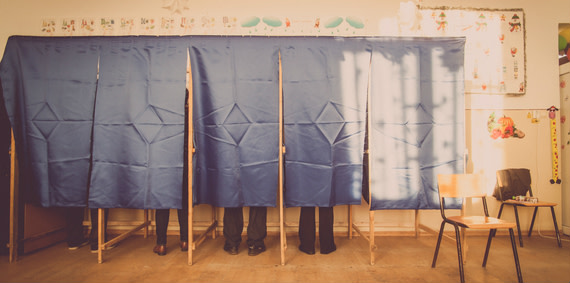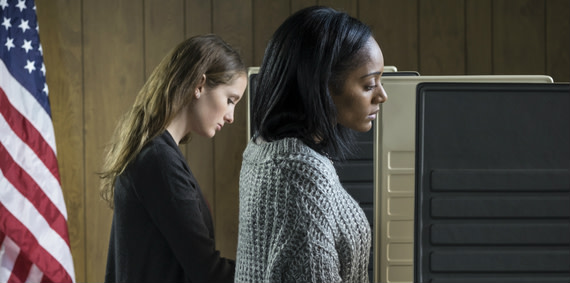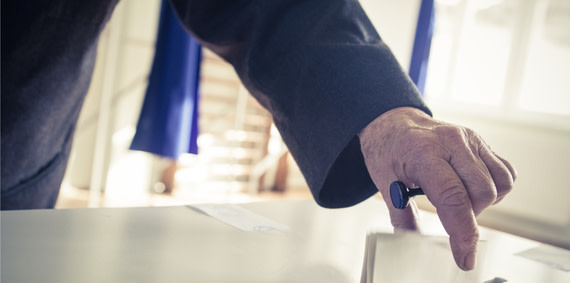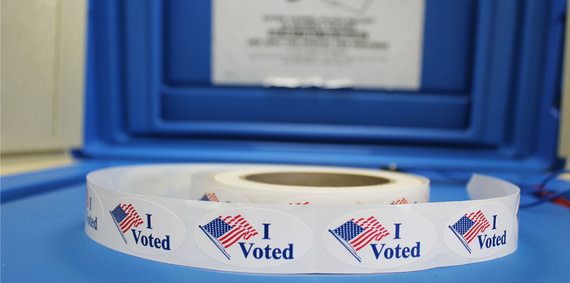
Young voters notoriously neglect the importance of voting, but their voice is an important one on both sides of the aisle. Key issues in every election increasingly relate to the concerns of students and professionals between the ages of 18 and 29, making it essential for members within that age group to educate themselves on political issues and take to the polls. While millennials represented nearly 50% of the entire voter population in the 2016 election, they were further divided along race, gender, and education lines when considering key issues from both candidates.
Why is it important to vote, especially if you fall within a crucial age demographic? Below are some of the most compelling reasons that young voters are needed more than ever in local, state, and national elections.

1. Young voters account for half of the voting population, making them a powerful political force.
The youth vote has the potential to be extremely influential in this country. While young voter participation in 2016 declined by 2% from a record 52% at the 2008 election, today the voting population includes almost equal parts millennials and baby boomers. As the boomer electorate decreases in size, experts suggest it is merely a matter of time before millennials become the largest and most powerful group driving future elections in the U.S. Unfortunately, not all who can vote will, meaning that fewer young people get to directly influence issues that might affect their lives for years to come, including college tuition reform and federal job programs.

2. Yet older Americans are more likely to vote.
While young people make up a large portion the voting-eligible population, they're much less likely than those who are older to get out and vote. In 2016, only 19% of people aged 18-29 cast their ballot in the presidential election; at 49%, 45-64-year-olds accounted for the largest electorate last year.
Some reports have attributed the outcome of the election to a "missed opportunity" on the part of millennials to affect change en masse: while the majority of young voters actually cast ballots for Hillary Clinton, their low turnout was not enough to counter the ballots of older voters. For this, researchers are increasingly interested in methods of successfully mobilizing young voter groups. Duke University recently initiated an innovative project designing policy reform to increase turnout among the youth.

3. Every vote counts.
Many young people cite feeling as though their vote doesn't count as their reason for not participating in elections. Millennials reported feeling especially disillusioned by both presidential candidates before the election in 2016, and many chose to sit out altogether as a result. In an America divided perhaps more than ever, every vote counts, especially those from one of the country's largest voting groups. President Barack Obama's election in 2008 is an example of this theory in motion, as his popularity with youth voters was one of the key elements of his campaign, giving him a large margin over competitors in a number of strategic states. Other elections in recent years have come down to just a few votes (Minnesota senator Al Franken won by just 312 votes in 2009 as one example), proving your vote does matter, maybe more than you realize.

4. Young people were hit hardest by the Great Recession.
College debt and a lack of jobs dealt some of the most crippling blows to the financial futures of many young voters after the Great Recession in the late-2000s. Though unemployment rates have declined and millennials have found their footing in a new economy, policy change and reform in areas affecting college students, such as debt forgiveness and healthcare, are as crucial now as they were in the 2008 election.
The situation won't be changed by sitting idle while others make major political decisions. Youth voters who want to inspire change need to show their support for the candidates whom they feel best represent their needs. No one else is going to vote in the interest of young people except young people.

5. Young voters are an incredibly diverse group.
The divisive nature of partisan politics is alive and well among young voters in today's world. So much so that the millennial electorate is expected to be the first demographic group with the ability to challenge the basic two-party system, potentially driving the need for alternative political parties whom millennials feel can represent the needs of a diverse population through a more inclusive agenda.
The same young adults in 2016 who were more likely to identify as liberals were also less likely to identify as Democrats. Currently, millennials are the most diverse voting group. Also of note? At 35%, a higher percentage of young voters identified with independent political views, rather than Republican or Democrat, than in the past three presidential elections.

6. Young people need to connect with politics early on.
Participating in politics is a hard-won right in our nation. Some experts argue that young Americans with such potential for affecting political change don't exercise the right to vote as often as they should. Many even suggest that the voting age should be lowered in an effort to promote earlier voting among teenagers and young adults. Building a relationship with the political process as early as possible is key to making voting a lifelong habit: you may already be familiar with the phrase, "Vote early, vote often." If you're historically a repeat voter, you're much less likely to skip a trip to the polls in the future. This sort of habit-forming participation is key to driving policy and electing leaders who represent the needs of voters of all ages.

7. It's easier than ever to be an educated voter.
In today's tech-savvy world, there is no excuse not to vote because you don't know enough about the candidates. In fact, one might find it harder to escape day-to-day political news than subscribe to it. In an era in which Twitter is preferred means of communication for the President of the United States, Instagram, YouTube, and Snapchat have become as crucial as the candidates' own websites for disseminating information about relevant issues. As this type of civic education in everything is typical for most Americans today, it isn't just beneficial in the months leading up the election but also on a day-to-day basis. The current online climate allows young voters to form a fuller picture of the candidates and their platforms in a medium they're familiar with.

8. The youth vote can sway the election.
As mentioned before, your vote does matter, so much so that the collective "youth vote" could actually sway the election. Millennials have been credited with the decisive vote in the 2012 election of Barack Obama for a second term as president; Obama won 67% of the national youth vote, proving more popular in crucial states such as Florida, Virginia, Pennsylvania, and Ohio, over his opponent Mitt Romney. In 2016, candidates campaigned hard for the 18-29 set, singling out initiatives to target millennials as a powerful electorate group. Why? Because they understand the necessity of winning approval from this voting majority.

9. You may not care now, but you might in four years.
You may feel that choosing a president or a senator just isn't something that affects your life right now. You might not yet be struggling with issues like college debt or finding a full-time job. For many millennials, adulthood brings many new challenges, like college, marriage, buying a house, paying for your own health insurance, and/or starting a business, all of which could radically change your perspective on political issues. While you can't predict who or where you'll be in four years, you can be sure that the political officials elected into office and the policies they implement will impact your life in the coming months and years. Why not have a say? Speak up, make a choice, and take part in the election to protect your interests in your first few years in the real world.

How You Can Get Involved and Vote
No matter your age or voting history, the first step in getting involved should be to check your voter status; research how to register to vote in your state if you’re not. If you are already registered in your state but have recently moved, you will need to update your address in order to provide current registration at your local polling place on election day. Some states now make it possible for you to register to vote online, though traditionally voters must register by mail or in person. You can, however, change your address online or via text message in some states, as well as search for polling places near you online.
Some states allow voting by mail for local, state, and even presidential elections. Students who are studying abroad or travelling during the election and thus, not in their home state or even in the U.S., must request an absentee ballot through the Federal Post Card Application (FPCA) form. Although they are requesting an absentee ballot from outside of their home state or country, the student must still be registered to vote in their state of residence to be eligible to vote in a U.S. election while away.